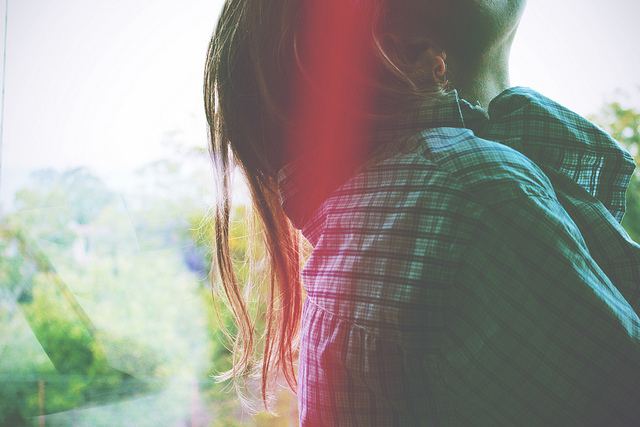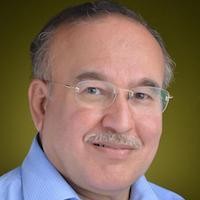
“We can see the Divine in each speck of dust, but that doesn’t stop us from wiping it away with a wet sponge. The Divine doesn’t disappear; it’s transformed into the clean surface.” ~ Paulo Coelho, The Witch Of Portobello
~
“To the poet, to the philosopher, to the saint, all things are friendly and sacred, all events profitable, all days holy, all men divine.” ~ Ralph Waldo Emerson
~
Every human being is born with an inner sense of unity.
As infants we remain as one with our mothers—mirrors of self. It is only later that a sense of separation takes hold of us.
As we grow we are drawn outward to discover and explore this mystery that is life and our place in it. For many of us the journey is arduous and painful, but sometimes we get prompts or flashes that provide us fleeting glimpses of our connection with the greater whole—our original mother.
Though in reality we have never left our source, we must sometimes journey a long way to remove the veils we have acquired in this life which obscure the truth. When humankind penetrates the mysteries of nature, the facts of the natural world become transparent symbols, revealing the energy which moves beneath—a divine energy. One we may recover only for a moment sometimes, when we are enraptured by the beauty of music or a lovely face. At such moments we forget our limited selves, our individualistic dreams, and we participate in the cosmic dream, becoming freed from the prison of our own individual souls.
A leaf on a tree, when looking outward, might imagine that each leaf is a distinct unit of being—separate and individual—making its own movement in the breeze. Yet if it can only widen its gaze to take in the whole tree it will recognize how it is connected and where its nourishment originates.
Similarly, we are a part of an integral, living, flowing web—an interconnected nervous system. The indescribable longing of the heart is the memory of when we were together with our Beloved. The pain of separation is our awakening to the knowledge that somewhere we are united with God. Longing draws us from separation back to union, from our fragmented sense of self to the deeper wholeness of our true being.
This longing of the heart is the sign of the deepest fulfilment. It is a love affair that was born before the beginning of time. Sadly, we have forgotten its potency. In the innermost chamber of the heart we look toward God, receptive and attentive, needing God’s nourishment. The mystic knows that only God can make us whole, only God can heal the sickness of the soul.
God’s grace and beauty is embodied in millions of human beings—like so many stars. It is just that we are oblivious to it. Surely, we ought to hold fast to the wonder, beauty, splendour and amazing radiance that permeates every pore of God’s own earth. We are occasionally amazed by this great mystery but often fail to appreciate it in the heat and bustle of our daily lives.
All too often we recognise it in hindsight—in a backward glance we remember what a spectacle it held for us and then suddenly realise that it is no more. We remember a beauty that faded, a love that waned, a music that receded, a life that ebbed and a wonder that mellowed. But we remember with far greater pain that we did not see that beauty when it bloomed and blossomed; that we failed to respond to love with love when it was offered; that we failed to enjoy the music when it resonated; and didn’t appreciate the life when it glowed bright.
A recent illness re-taught me this truth. I was in hospital for several days. Just being there in the sickness and misery made me feel sickly and miserable. Across the room, a thin, dishevelled man hunched awkwardly over the edge of his stretcher. He had strange cuts and bruises scattered across his face and arms and had been waiting to be seen for almost an hour.
A woman in her mid-20s who sat cross-legged on a stretcher in the hallway, bouncing up and down with a wide-eyed, unhinged look on her face as she vacillated between singing and crying. As I approached to introduce myself, a viscous ball of saliva and mucus left her mouth and landed squarely on my left cheek. “Be careful: she’s a spitter!” a nurse advised as she rushed past. “PCP and alcohol. Give her a few minutes to calm down.”
An elderly man was lying on a nearby stretcher and moaning, and I softly asked what had brought him to the hospital. No response. I shook him gently and asked again, louder this time. He opened his eyes just enough to see my face and muttered something entirely incomprehensible. “I consider myself to be an incredibly blessed person,” he said. “I know I’ll get through this.” His body was sick but his spirit was unyielding.
One morning, I had to have pathological tests as well as an x-ray as I was down with a bout of searing fever and crucifying pain. The required machines were located in a building at the opposite end of the hospital, so I had to be wheeled across the courtyard on a wheelchair. As we emerged from our unit, the sunlight hit me.
That’s all that there was to my experience: just the light of the sun. And yet how beautiful and wondrous it was! How warming, how sparkling, how stunning and brilliant! I looked to see whether anyone else realised the sun’s golden glow, but everyone seemed to be shuffling along in great hurry, most with their eyes fixed on the ground, confused and dazed, their hands clutching medical files. Then I remembered how often I, too, had been indifferent to the grandeur of each day, too preoccupied with petty and sometimes even mean concerns to respond to the splendour of it all.
The insight I gleaned from that experience is really as commonplace the experience itself was: life’s gifts are precious and abundant, but we are blind to them as they beckon us to cheer us along the way in the bustle of our everyday hopelessness. Thomas Merton describes the rush and pressure of modern life as a form of contemporary violence. He says,
“…to be surrendering to too many demands, too many concerns, is to succumb to the violence.”
When we’re speeding along, we violate our own natural rhythms in a way that prevents us from listening to our inner life and being in a resonant field with others. We get tight. We get small. We override our capacity to appreciate beauty, to celebrate, to serve from the heart. Our mindfulness practice offers us the opportunity to pause and rediscover the space of presence.
We might run across a person who radiates an inner light. These people can be from any walk of life. They seem deeply good. They listen well. They make you feel funny and valued. We often catch them looking after other people, and as they do so their laughter is musical and their manner is infused with gratitude.
When we stop charging forward and open to what’s here, there’s a radical shift in our experience of being alive. As we touch into this space of “here-ness,” we access wisdom, love and creativity that are otherwise not available to us when we’re on our way to another place.
We are already home—in our aliveness and our spirit.
Here then is the first pole of life’s paradoxical demands on us: never be too busy to deprive ourselves of the wonder and the awe of life. Be reverent before each drawing day. Embrace each wonderful hour. Seize each golden minute. Even ordinary things have the power to touch any heart.
Pause for a moment beside a tree and its verdant leafy munificence. Feel the love of the lush, dense forest. Look at the humble serenity of a flower, the vibrant rainbow of colours of a butterfly. Spare them some moments of silent thought.
Hold on fast to life, but not so fast that you cannot let go. This is the second side of life’s coin, the opposite pole of its paradox. We must accept our losses and learn how to let go.
There is no fault in God’s plan of the universe. Its alchemy is simply marvelous.
~
Author: Moin Qazi
Image: Naud/ Flickr
Editor: Khara-Jade Warren











Read 0 comments and reply